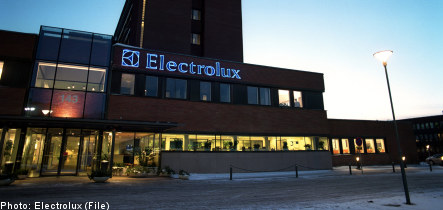The Swedish company posted a net profit of 361 million kronor ($55 million) in the January to March period, while sales dipped by 2.0 percent to 25 billion.
Those figures came in below the forecasts of analysts surveyed by Down Jones Newswires, who had predicted an average net profit of 519 million and sales of 26 billion.
SEE ALSO: Get the latest exchange rates and transfer money on The Local’s Currency page
Electrolux said the slowing demand for household appliances in Europe had weighed down revenue, as consumers held back on purchases amid the sluggish economy.
Sales in the Europe, Africa and Middle East region slid by 8.1 percent to 7.6 billion kronor.
However, sales improved in the North America and Asia Pacific regions, rising by 8.0 percent to 7.7 billion and by 5.8 percent to 1.9 billion respectively.
Electrolux said the strong Swedish krona had a negative effect of 318 million kronor on its operating profit, which plunged by 30 percent in the quarter to 638 million kronor.
Chief executive officer Keith McLoughlin told the TT news agency that there was “no point in panicking” about the currency effects, as they could not be controlled.
In 2013, demand is expected to decline in Europe but rise in North America, Electrolux said.
McLoughlin said the company expected the European market to “be weak and get weaker. We don’t expect any recovery in the first half of the year.”
He noted however that Russia, Britain, Finland, and Norway were bright spots in Europe.
The Electrolux share price was up 3.95 percent on the Stockholm exchange in mid-afternoon trading, in a market up 1.05 percent.
AFP/The Local/og



 Please whitelist us to continue reading.
Please whitelist us to continue reading.
Member comments